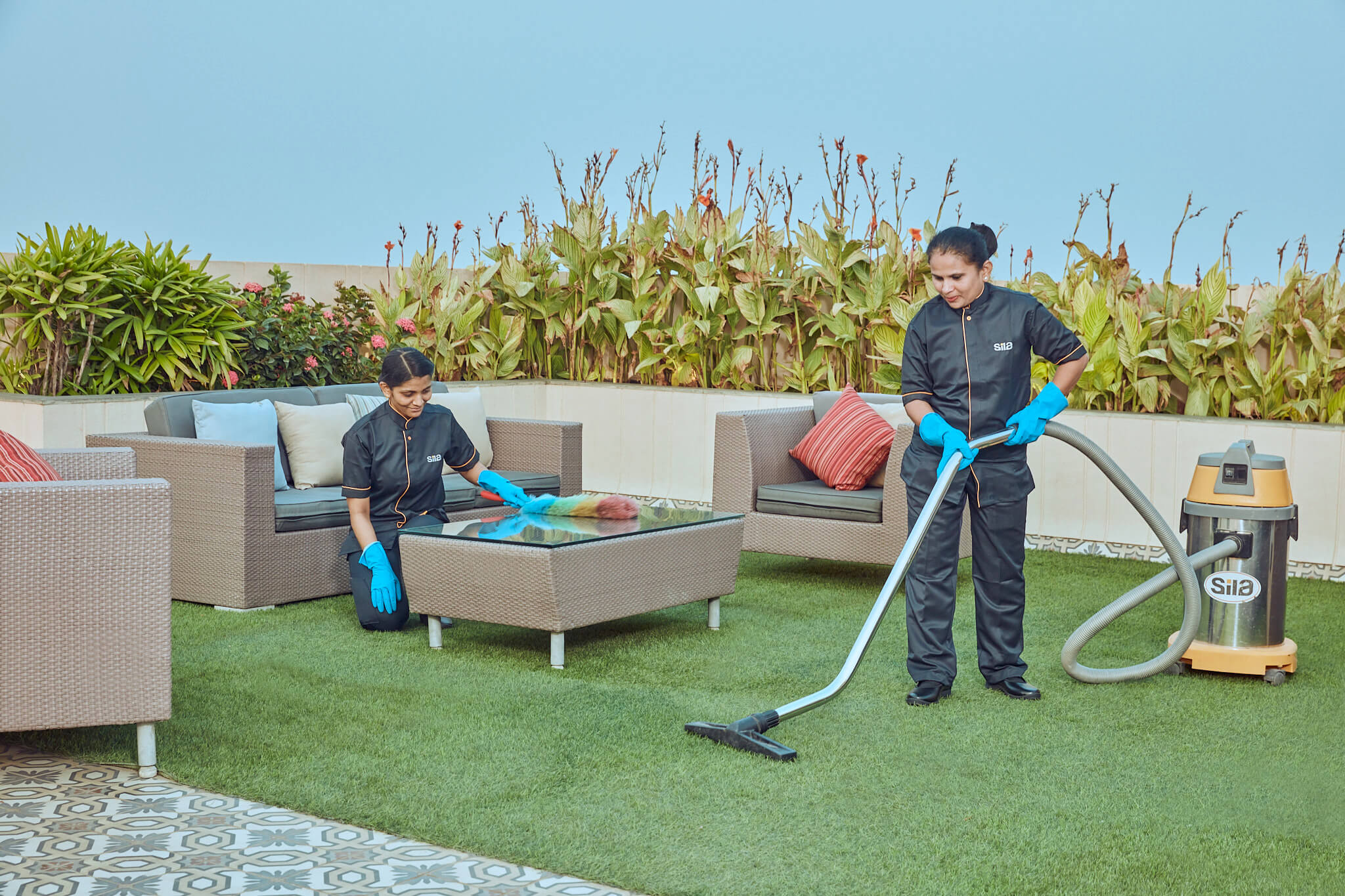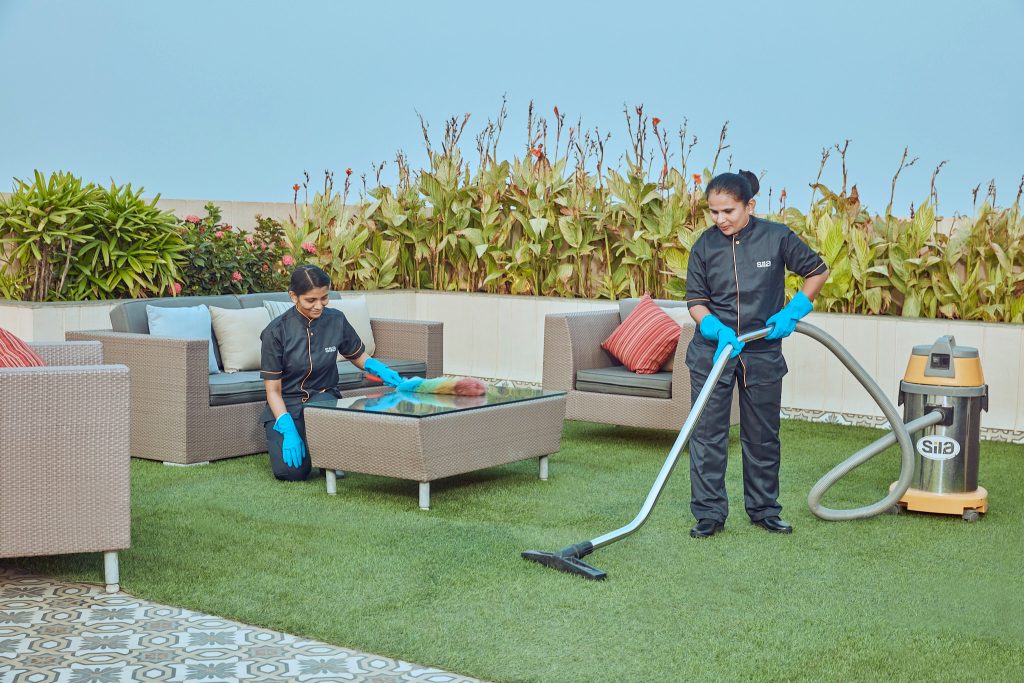
Introduction
As the seasons change, maintaining a comfortable home becomes essential while balancing environmental sustainability and cost-effective energy use. It’s crucial to explore ways to keep your home comfortable without burning through your wallet or leaving a large carbon footprint. This comprehensive guide provides valuable insights and tips on mastering energy efficiency throughout the year, covering everything from optimizing your air conditioning to adopting eco-friendly practices.
1. Check Your Air Conditioning
Your air conditioning (A/C) system is a key player in the battle against summer heat. Regular maintenance ensures optimal performance and energy efficiency. Here are some DIY tips to keep your A/C in top shape:
- Vacuum air vents to remove dust buildup.
- Ensure furniture and objects don’t obstruct airflow through vents.
- Avoid placing heat-producing appliances like lamps or TVs near the thermostat.
2. Replace Your Air Filter
A simple yet impactful step is regularly replacing your air filter. A clean filter enhances airflow, allowing your A/C to absorb heat more effectively. This small act can reduce your A/C’s energy usage by up to 15%.
3. Opt for LED Light Bulbs
Make the switch from incandescent bulbs to LED lights. LED lights are energy-efficient, using 75% less energy, lasting 25 times longer, and emitting significantly less heat. While they may have a higher upfront cost, the long-term energy savings make them a sustainable choice.
4. Use Your Thermostat Wisely
Setting your thermostat at an energy-efficient temperature is crucial. Aim for 78°F or higher during the summer. Every degree below this threshold increases energy usage by six to eight percent. Consider investing in a smart thermostat for automated temperature adjustments based on your habits, optimizing energy efficiency.
5. Use Fans With Your A/C
Running fans alongside your air conditioning allows you to set the thermostat a few degrees higher without sacrificing comfort. Ceiling fans create a wind chill effect, making the room feel cooler. However, remember to turn off fans when leaving to avoid unnecessary energy consumption.
6. Close Your Blinds
Take advantage of natural shade by closing blinds or drapes during the day, especially on southern- and western-facing windows. This prevents the sun’s heat from entering your home, reducing the need for excessive cooling.
7. Get an Energy-Efficient Dehumidifier
In humid climates, a dehumidifier complements your A/C by reducing humidity levels. This synergy can lower overall energy costs, as your A/C won’t have to work as hard to cool and dehumidify the air.
8. Avoid the Oven
Cooking with conventional ovens generates heat, making your A/C work harder. Opt for alternatives like microwaves, slow cookers, or outdoor grilling to keep your kitchen cool and energy-efficient.
9. Wash Strategically
Washing machines, clothes dryers, and dishwashers produce significant heat. Use cold water for washing, run full loads to minimize appliance usage, and air-dry clothes when possible. Additionally, consider taking cold showers to reduce water heating costs.
10. If You Aren’t Using It, Unplug It
Electronics generate heat, even when turned off but plugged in. Unplug devices when not in use to prevent unnecessary heat production and contribute to overall energy savings.
11. Seal Your Home
Ensuring your home is properly sealed prevents air leaks, keeping cool air in and warm air out. Use caulk and weather-stripping to seal gaps around doors, windows, and other potential openings. Regularly check attics and basements for leaks, applying insulation or weather-stripping as needed.
Environmental Sustainability and Energy Efficiency
As you implement these energy-saving tips, it’s essential to recognize their broader impact on environmental sustainability. Sustainable practices extend beyond the summer months, contributing to a greener, more eco-friendly lifestyle. Let’s explore how these tips align with keywords associated with environmental sustainability:
Sustainable Building Materials and Practices
- Using LED light bulbs is a sustainable choice, as they are energy-efficient and have a longer lifespan.
- Proper insulation and sealing your home contribute to sustainable building practices by reducing the need for excessive cooling or heating.
Recycling and Waste Management
- Unplugging electronics when not in use reduces energy waste, aligning with principles of waste reduction.
- Regular maintenance of air conditioning systems ensures their longevity, minimizing electronic waste.
Energy Conservation and Management
- Smart thermostats and energy-efficient appliances enable better energy conservation by optimizing usage based on habits.
- Regular air conditioning maintenance is a form of energy management, ensuring the system operates at peak efficiency.
Green Building and Sustainability
- Sealing your home and optimizing energy usage align with green building principles.
- Choosing energy-efficient appliances and lighting contributes to sustainable living practices.
Waste Disposal Companies and Recycling
- Sustainable living involves reducing energy consumption, indirectly impacting waste disposal by minimizing electronic waste.
- Energy-efficient practices contribute to overall resource conservation and waste reduction.
Sustainable Development and Eco-Friendly Products
- Sustainable development is fostered by incorporating energy-efficient technologies into daily life.
- LED lights and energy-efficient appliances exemplify the use of eco-friendly products.
Conclusion
Mastering energy efficiency is a multifaceted endeavor that not only keeps your home comfortable and your energy bills low but also aligns with the principles of environmental sustainability. By adopting these tips and integrating them into your lifestyle, you contribute to a greener, more eco-friendly future. Whether it’s choosing LED lights, optimizing your thermostat, or sealing your home, each action plays a role in building a sustainable and energy-efficient environment for all seasons. Embrace these practices to enjoy a cozy, eco-friendly home year-round.
SILA adopts a tech-driven approach, utilizing Robotics and IoT, Automated Compliance Management, and our proprietary technology (SILA Connect) to efficiently manage properties across India. As pioneers in technology within the facility management sector, SILA stands out as one of the best Integrated facility management service provider in India.
Industries We serve –
Commercial Offices & Buildings | Manufacturing & Heavy Industrial Facilities | Residential Complexes & Townships | Hotels & Campuses | Airports & Malls | IT Parks & Data Centers | Warehousing & Logistics Parks | Banks & Retail
Present in 125 cities –
Ahmedabad | Baroda | Bengaluru | Chennai | Bhubaneswar | Delhi | Gurugram | Noida | Kolkata | Hyderabad | Kochi | Mumbai | Pune & more
Get a free quote today, to reduce your facility management cost.
Also Read: The Unsung Heroes: The Essential Role of Facility Managers in Our Daily Lives
FAQs
1. What are soft services in facility management?
Soft services encompass a range of human-centered services aimed at creating a comfortable, secure environment. These services primarily involve human interaction and contribute to enhancing the overall ambiance. Examples include housekeeping, payroll management, pest control, front office management, pantry services, front desk support, and horticulture.
2. What are the hard services in facility management?
Hard services in facility management refer to the physical and structural elements that are essential for the operation, functionality, and maintenance of a facility. These services typically involve machinery, systems, and infrastructure. Some examples of hard services include mechanised cleaning services, managing & maintaining HVAC and Electrical Systems, Plumbing and Water Management, Fire Safety and Security Systems, Waste Management etc.
3. How does outsourcing Facility Management lead to cost savings?
Facility Management proves to be cost-effective. Managing spaces in-house can incur significant expenses. However, outsourcing it not only reduces the time your staff spends overseeing facility operations but also results in long-term savings.
4. What is mechanized housekeeping?
Mechanized housekeeping refers to the use of machinery, equipment, and automated tools in performing various cleaning tasks and maintenance activities within a commercial or residential space. This approach involves the use of specialized cleaning equipment such as vacuum cleaners, floor scrubbers, polishers, steam cleaners, pressure washers, and robotic devices designed to automate or simplify cleaning processes.
5. How does Facility Management play a key role in an organization's success?
Facility Management (FM) plays a pivotal role in an organization’s success by contributing to various aspects that directly impact efficiency, productivity, and overall performance. FM ensures that the physical workspace, infrastructure, and systems are well-maintained, safe, and conducive to work. A properly managed facility promotes productivity among employees by providing a comfortable and efficient working environment.
About SILA -
A Real Estate platform driven by an entrepreneurial spirit.
Our businesses include Real Estate Services which offer Facility Management, Contracting Solutions and Real Estate Advisory. Our other business is Real Estate Development. We have a diverse client base in various sectors which include large Corporates, Real Estate Funds, Landowners and Developers.
Over the last decade, SILA has scaled efficiently, managing over 200 million square feet of assets, with over 22,000 + employees pan India. The platform is backed by Norwest Venture Partners and Samara Capital Group in our Real Estate Services and Development arms, respectively.
SILA is one of the best housekeeping agency in Mumbai,
Bangalore, Delhi, Chennai, Hyderabad, Pune & more.
SILA is among the top facility management companies in India, offering comprehensive property management services and housekeeping solutions. As a leading facilities management company, SILA provides tailored FM solutions, including housekeeping services in Mumbai. Leveraging our expertise, we ensure seamless property management for clients nationwide. Whether you require housekeeping agency support or specialized facility management solutions, SILA delivers excellence in every aspect of your property’s upkeep and maintenance.
About Author -

Aniket Sheth
The insightful content in this blog is curated by Aniket Sheth, our esteemed Senior Vice President of Operations. With an impressive professional journey spanning over 13 years, Aniket has held key positions at prestigious brands, showcasing his exceptional leadership skills.
Aniket’s educational background is marked by an MBA from Cornell University, which laid the foundation for his successful career. He began his professional journey at EY in New York, contributing significantly to enhancing and implementing engagements for Fortune 500 companies.
Aniket’s strategic acumen, proficiency in asset management, and forward-thinking innovation have been instrumental in helping companies streamline their operations and achieve substantial cost reductions. His wealth of experience brings a unique perspective to the world of facilities management, making his insights invaluable for businesses seeking operational excellence.





















